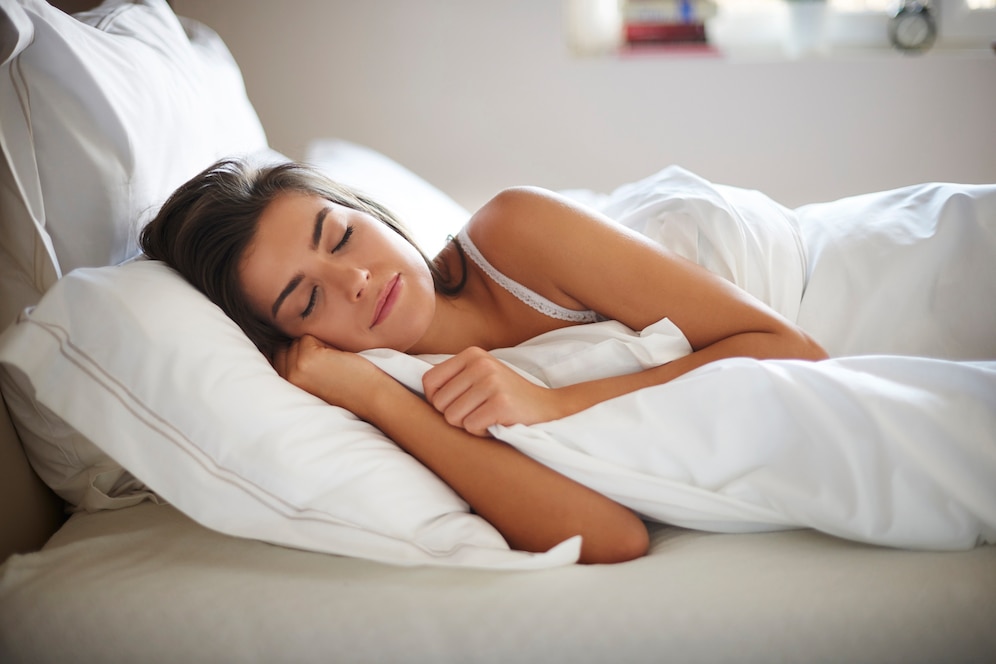
Your mental and physical health is directly impacted by the standard of sleep you get. If you don’t get enough sleep, it can affect your mood, productivity, and even your waistline the next day. To this day, many of us still have problems getting to sleep and remaining asleep at night.
The inability to get a good night’s sleep is only one symptom of the adverse effects of unhealthy habits and a lack of exercise on your mental and physical well-being, as well as your weight, energy level, creativity, and immunity. However, by giving the following suggestions a try, you may sleep better at night, improve your health, and have a more positive outlook during the day.
1. Expose Yourself to More Day Light
The internal clock in your body is called your circadian rhythm.
It has a physiological and psychological impact, influencing sleep and wake cycles and the hormones involved.
Daytime exposure to natural sunlight or intense artificial light also aids in maintaining a normal circadian rhythm. This improves the caliber and quantity of sleep, leading to greater daytime alertness.
Those who suffer from insomnia sleep better and longer after exposure to intense light during the day. It took 83% less time to drift off to sleep.
For older persons, just two hours of daytime exposure to bright light resulted in a two-hour increase in total sleep time and an eighty percent improvement in the quality of that sleep.
Daily light exposure will help even if you suffer average sleep, even though most studies concern persons with severe sleep disorders.
To supplement your lack of access to natural light, you may wish to invest in some high-intensity lighting.
2. Get Shorter Naps During the Day
While it’s true that catching a little power nap throughout the day might boost performance, excessive daytime sleeping can have the opposite effect.
Sleeping during the day might throw off your body’s natural rhythm, leading to nighttime insomnia.
People who are habituated to napping throughout the day, however, have not been shown to have poor nighttime sleep quality or sleep disruptions due to these naps.
No need to fret if you regularly nap during the day and get enough quality shuteye. Napping can have positive or negative impacts, depending on the person.
3. Maintain Your Regular Sleep-Wake Routine
Circadian rhythm, or your body’s internal clock, follows the daily rise and fall of the sun.
Keeping to the same schedule of going to bed and getting up will help you get better rest.
A lack of quality sleep was observed by study participants who had erratic sleep schedules and regularly went to bed late on weekends.
Various studies have shown that if you don’t get enough sleep at regular intervals, it can throw off your circadian rhythm and melatonin levels, both of which tell your brain it’s time to sleep.
4. Try a Melatonin Pill
Melatonin is released when the body and brain decide it’s time to wind down and sleep.
Melatonin pills are widely used as a means of getting to sleep.
It’s possible that melatonin, a drug commonly used to treat insomnia, is the quickest route to sleep.
Because it aids in normalizing the body’s circadian rhythm, melatonin is also helpful for jet lag and jet setting. Melatonin is available without a prescription in various countries.
You should begin with a modest dose to determine your tolerance and gradually raise it as needed. Due to its propensity to alter brain chemistry, melatonin use should be discussed with a medical professional beforehand.
You can get melatonin meds for less online.
5. Abstain From Alcoholic Beverages
Drinking alcohol at night might disrupt your hormones and cause sleep disruptions.
Snoring, sleep disruption, and apnea during sleep are all conditions that are linked to alcohol use.
It also affects the body’s circadian rhythm by changing melatonin production at night.
6. Adjust the Temperature in Your Bedroom
The body’s temperature and room have been shown to affect how well one sleeps significantly.
If you’ve ever tried to sleep in the summer or somewhere extremely warm, you know how difficult it may be.
The study found a more significant correlation between the temperature of the bedroom and the quality of sleep than there was between the bedroom temperature and the noise level.
7. Take Some Time to Relax in the Tub or Shower Before Bed
It’s common practice to unwind in the tub or shower before bed.
Studies show that they can assist people of all ages in falling asleep more quickly and sleeping more soundly, especially the elderly.
If you don’t have time for a full bath before bed, soaking your feet in hot water can have the same effect.
8. Invest in a Soft Mattress and Pillow.
Many people can’t explain why staying in a hotel guarantees a better night’s rest. The quality of the bed can have an effect on sleep, in addition to the soothing surroundings.
What constitutes the best bed and mattress is highly debatable. When upgrading your bedding, go with what you like best.
Changing your bedding at least once every seven to eight years is advised.
This can be a fast (although pricey) solution if you haven’t replaced your mattress or bedding in a long time.
9. Improve Your Bedroom Environment
A comfortable bedroom and a well-designed sleeping space are often cited as essential elements in a good night’s sleep.
The ambient temperature, the ambient noise level, the ambient exterior lighting, and the placement of the furniture all play a role.
Noise pollution, especially from traffic, has been linked in numerous studies to worse sleep and other health problems.
One study found that about half of the women slept better when noise and light were reduced in bedrooms.
Use blackout curtains and an alarm clock to reduce the amount of natural light, noise, and artificial lights in your bedroom. Maintain a calm, clean, and pleasant atmosphere in your bedroom.







